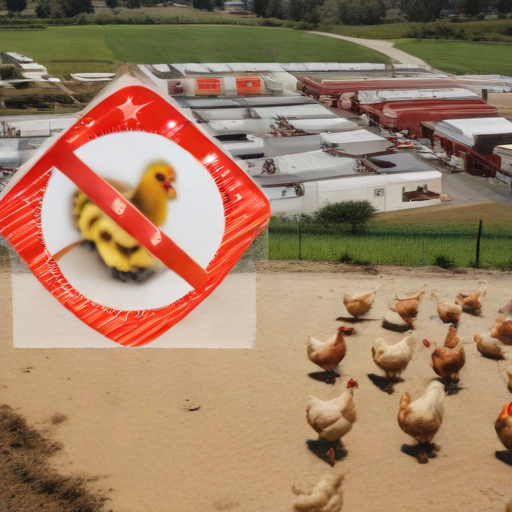For nearly three years, avian influenza has caused significant damage to poultry farms throughout the United States, particularly in California. The virus has recently spread to cattle, resulting in 34 confirmed human cases in the state, primarily among poultry and dairy workers, since the beginning of spring.
In light of these developments, Governor Gavin Newsom announced an emergency proclamation on Wednesday aimed at enhancing the state’s response to the outbreak. This measure is designed to grant state and local agencies more flexibility regarding staffing, contracts, and regulations to combat the virus effectively.
In his statement, Newsom emphasized California’s commitment to public health and the agricultural sector, highlighting the state’s extensive testing and monitoring system, which is regarded as the largest in the nation. He indicated that safeguarding public health and ensuring Californians can access current, reliable information remains a priority.
The majority of confirmed human cases have been located in Tulare County, noted as the nation’s leading milk producer, which has reported 18 cases. Republican Assemblymember Alexandra Macedo criticized Newsom for perceived inaction and a lack of adequate funding for testing initiatives. The virus has also been detected in at least 17 wastewater systems throughout the state.
Farmworkers have reported symptoms typical of flu-like illnesses, alongside cases of pink eye, and there has been one instance of mild upper respiratory symptoms in a child from Alameda County. In response, local health departments and farms have started distributing personal protective equipment. However, advocates for workers have expressed concerns that the state’s protective measures are insufficient and that testing for infected cattle has been sluggish.
The impact of the bird flu outbreak could extend beyond those directly working with livestock. Maurice Pitesky, an associate professor at the UC Davis School of Veterinary Medicine, warned of potential serious consequences for food security, noting that egg prices are currently at historically high levels. He suggested this could affect the production of animal protein and the sustainability of farmers in the region.
A study funded by the National Institutes of Health and published in Science recently indicated that even a single mutation of the virus could lead to a significantly more infectious variant among humans, raising further concerns.
To minimize personal risk, Pitesky recommends avoiding raw milk consumption. For those engaging in backyard chicken farming—estimated at around 100,000 operations in California—he advises maintaining good hygiene practices, such as regularly washing hands and using dedicated clothing for outdoor activities.
Overall, while the current situation is challenging, there is a concerted effort at various levels of government and the agricultural community to address these pressing issues, which may ultimately enhance protective measures and improve overall health responses in California.
This proactive approach signals a collective commitment to not only tackle the immediate effects of the outbreak but also to safeguard the future of food security and health for all Californians.
